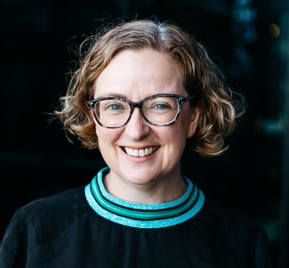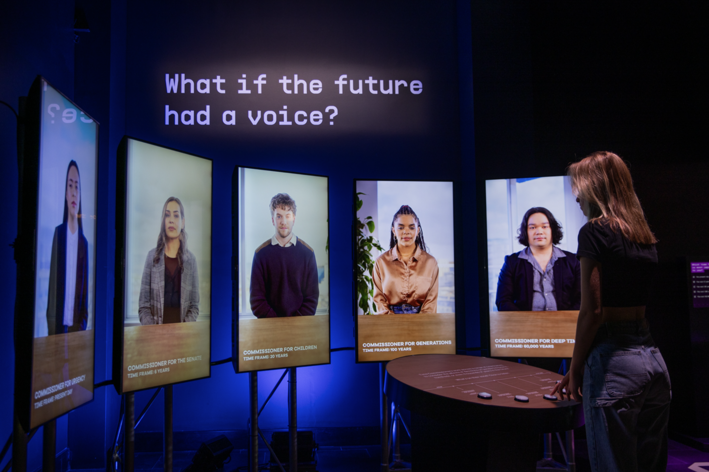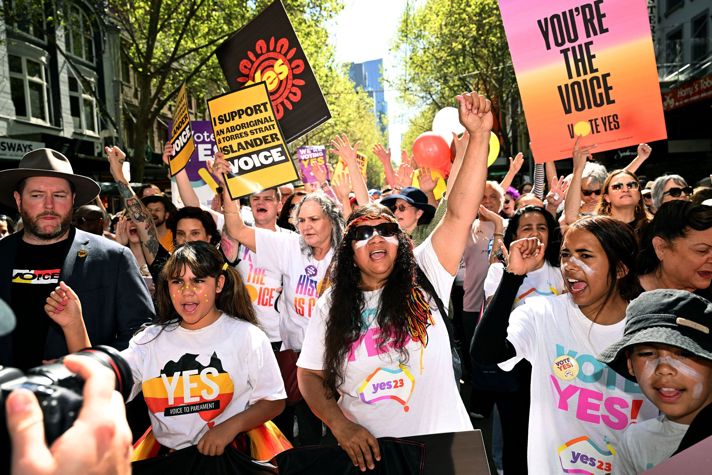Tools for Messy Futures

Tools for Messy Futures
Conversations with Kristin Alford, Director of the Museum of Discovery in Adelaide
In this fifth blog post Dr. Sandro Debono, a museum thinker based on the Mediterranean island of Malta, shares his thoughts and reflections about the Chatter Marks Museums in a Climate of Change podcast series with museum professionals from all over the world, co-hosted with Cody Liska.
In 2050, the future shall be as messy and complex as it is today.

Kristin Alford, Director of
the Museum of Discovery
Anything but a reassuring statement, I would add. Perhaps that will always be the case particularly if we consider the future as an unknown quantity too. When that statement comes from Kristin Alford, the inaugural director of the Museum of Discovery - MOD in Adelaide, South Australia, there is much more to think about. The conversation Cody and I had with Kristin Alford was all about under-standing the depth of this statement and the ways and means to look into it.
First things first. The MOD is a futuristic museum of discovery and a place to be inspired by ideas at the intersection of science art and innovation. It is to all intents and purpsoes a university museum showcasing research, carried out at the University and across the state of South Australia. There is no permanent display like any other mainstream museum. Instead, MOD presents one in-gallery and one online exhibition each year with both designed for young adults aged between fifteen and twenty five. Indeed, this is a museum of discovery for young adults that is anything but usual. Even the more unusual is that MOD is led by someone who is a futurist. We could not help asking. What is a futurist? Kristin willingly obliged to explain.
Futurists are people with an aptitude for spotting trends and understanding how these might play out in the future. Futurists have the skills to anticipate aspects of the future, are creative in generating alternatives and possibilities that con-tribute to imagining a preferred future and, last but not least, set the goals and
objectives to reach it. Is the work of a futurist necessary and needed? Certainly so, as Kristin explains from experience going back to when she ran her foresight agency. MOD was later to benefit substantially from that experience as Kristin brought such tools as strategic foresight to the institution. “Finding alternatives is not easy, but my background as a futurist is driving my work about how we should package our exhibitions and programmes” Kristin claims.
This is where Cody and I got curious to know more about how this thinking is applied in practical terms at MOD. Kristin took us through the ways and means how field research is at MOD. The process is guided by two simple, straight forward questions fielded to participants coming from specific sectors of interest to MOD and informally invited to be part of the conversation.
The questions asked would be the following:
What do you think is important about the future?
What keeps you up at 2.00 a.m. in deep conversation?MOD would then work on prototyping exhibitions taking the answers provided as a point of departure and with the help of a youth board that meets every month.

The ‘Broken’ exhibition. Image by Topbunk. Source: MOD website
Broken is the latest exhibition at MOD that is the product of this thinking, exploring a widespread feeling that the world is broken and nothing will change. Some of the exhibition’s contents might come across as far-fetched, unthinkable and unimaginable. From trees that might be politically active and have a vote to hearing a voice from 60,000 years into the future … This is the product of an institution led by a Futurist!
Kristin also takes us through the theoretical framework guiding the choice of questions that Broken presents to its public. Hope is the guiding framework with a goal-oriented strategy that moves visitors from being broken to being hopeful.
With Kristin we also talk about artificial intelligence (AI) and how this tool can be useful to humanity. Indeed, it might still be early days for AI even if things are evolving faster than we might expect. And yet Kristin is quite clear about the state of play. AI will not capture everything for us, particularly those things that are culture-specific. Kristin cites recipes to make her point. “We will mistake re-mixing for novelty”, Kristin adds. The same applies when we consider AI for the purpose of climate change action. Artificial intelligence might just tell us what we know too well and what needs to be done that we have also known for the past years.
Kristin is not sure MOD is making a difference around climate change action. The institution is certainly educating and contributing to getting anxieties around climate change under control. Kristin still hopes that the conversations around futures thinking are leaving their mark especially in young people’s lives, per-haps not as direct as one might consider. Going by what Kristin told us, I do believe MOD is fostering positive thinking around such issues.

‘Yes’ campaigners marching during the Australian Indigenous Voice
referendum campaign. Image by Robert Wallace/AFP. Source: CNN
As expected, the conversation touched upon the Australian Indigenous Voice Referendum scheduled for October 14, 2023, a few weeks following our podcast recording. Kristin flagged a measure of willingness and consensus to adopt indigenous knowledge in Australia citing the ever increasing visibility of aboriginal languages over the past few years in spite of the significant content of racist conversation in the media. This ever growing sense of empathy and willingness to engage with a culture that feels different does come with a fair share of risk. That includes commercializing indigenous knowledge.
Kristin synthesizes this relationship with indigenous communities rather succinctly—Nothing about us without us.
More than shifting towards first nation knowledge, this relationship has to be about rethinking first nation relations and knowledge systems to comfortably sit next to and within a capitalistic world. Grappling with how we merge both knowledge systems to create a new shade and understanding of our place in the world is going to be important. The best of both worlds perhaps?
Kristin is, indeed, convinced that we did not get it wrong in the western knowledge system, at all, and at MOD this is understood and interpreted as being two way minded. An amalgam of both rather than prioritizing one over the other. ‘We’re working to bring first nations knowledge into the experiences we offer to our audiences’ Kristin convincingly claims.
My takeaway is pretty straightforward. In 2050, it will still be as messy and complex as the present with climate change heavily impacting our way of life. Are we making things worse? By changing our practices we can definitely make things less worse.
This podcast series could not have a better ending and there is much more to listen to and discover on this final podcast episode, at least for now.
Listen to the podcast in its entirety here.
As you listen to this podcast you will hear Kristin mention ideas, projects and many other details. Should you wish to explore further, these are some links to the things that get mentioned:
The Broken Exhibition- on view at MOD, January to November 2024
The artist, Karl Telfer
Open space methodology
Futures Literacy
Strategic Foresight
The Museum of Discovery(MOD)
Snyder’s Hope Theory
Terra Nil
The Australian Indigenous Voice Referendum
Richard Slaughter